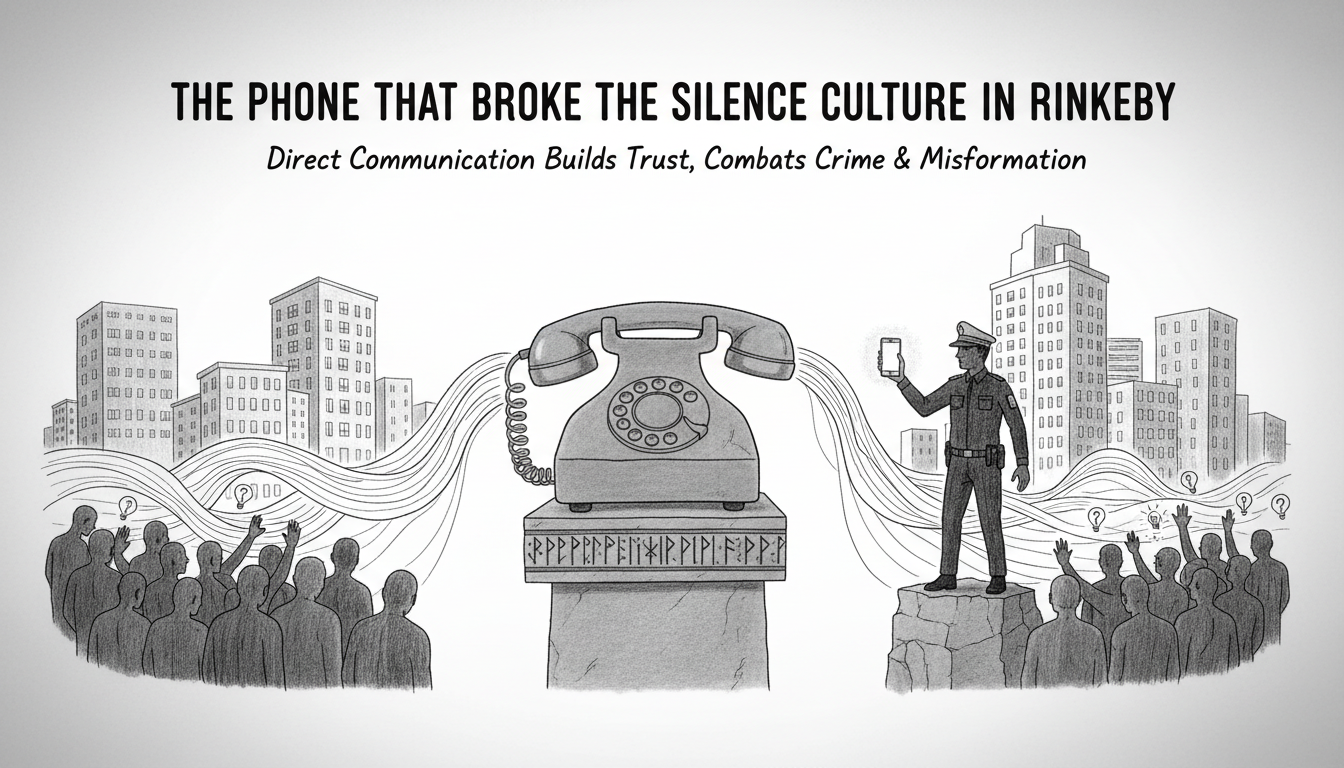A simple telephone in a Stockholm suburb office has become a powerful tool against crime and distrust. Police officer Rissa Seidou and her team established a direct line for residents to share tips and seek help without going through emergency services.
The phone sat in the office where Seidou's group worked. It became a vital instrument for building trust and creating communication channels with citizens. Through incoming calls, police gained better control over areas suffering from daily violence incidents.
The purpose was clear. It gave residents an opportunity to call, provide tips, or request assistance without contacting 114 14 or 112. Those numbers serve urgent emergencies only.
But staffing shortages created unexpected challenges. The initiative eventually became personal for Seidou. She said in a statement, "Because of staff shortages, it ended up being my own phone number."
Rinkeby represents one of Stockholm's most challenging suburbs. Criminal elements and other actors spread lies and distrust toward authorities there. Building connections proves difficult in such an environment. Yet this telephone helped police construct a bridge to citizens.
Today, Seidou receives numerous calls and tips from residents. People contact her when something seems wrong in their community.
The initiative addresses Sweden's ongoing struggle with segregation and parallel societies. Many immigrant-dense suburbs face similar challenges with trust between residents and authorities. This direct communication approach offers a practical solution.
Swedish police have experimented with various community policing methods in recent years. Traditional law enforcement alone hasn't solved the complex social issues in areas like Rinkeby. The telephone initiative represents a more personal, accessible approach.
The success of this simple tool raises questions about resource allocation in Swedish policing. While the method works, its dependence on individual officers like Seidou highlights systemic staffing problems. Police unions have repeatedly warned about officer shortages across Sweden.
International observers might find parallels with community policing efforts in other countries. The Swedish context remains unique though. The nation's specific migration patterns and welfare state structure create distinct challenges.
For expats and international readers, this story illustrates how Sweden tackles urban challenges differently than many countries. The focus remains on building trust rather than increasing surveillance or punishment.
The telephone's impact extends beyond immediate crime prevention. It helps counter misinformation campaigns that often target vulnerable communities. By providing a direct, reliable information source, police can combat narratives that undermine social cohesion.
What happens next with this initiative remains uncertain. The approach shows promise but requires sustainable funding and staffing. Other Swedish suburbs facing similar issues might adopt comparable methods if results continue positive.
This development matters because it demonstrates that sometimes the simplest solutions work best. In an era of high-tech policing, a basic telephone connection is making real difference in one Stockholm community.

